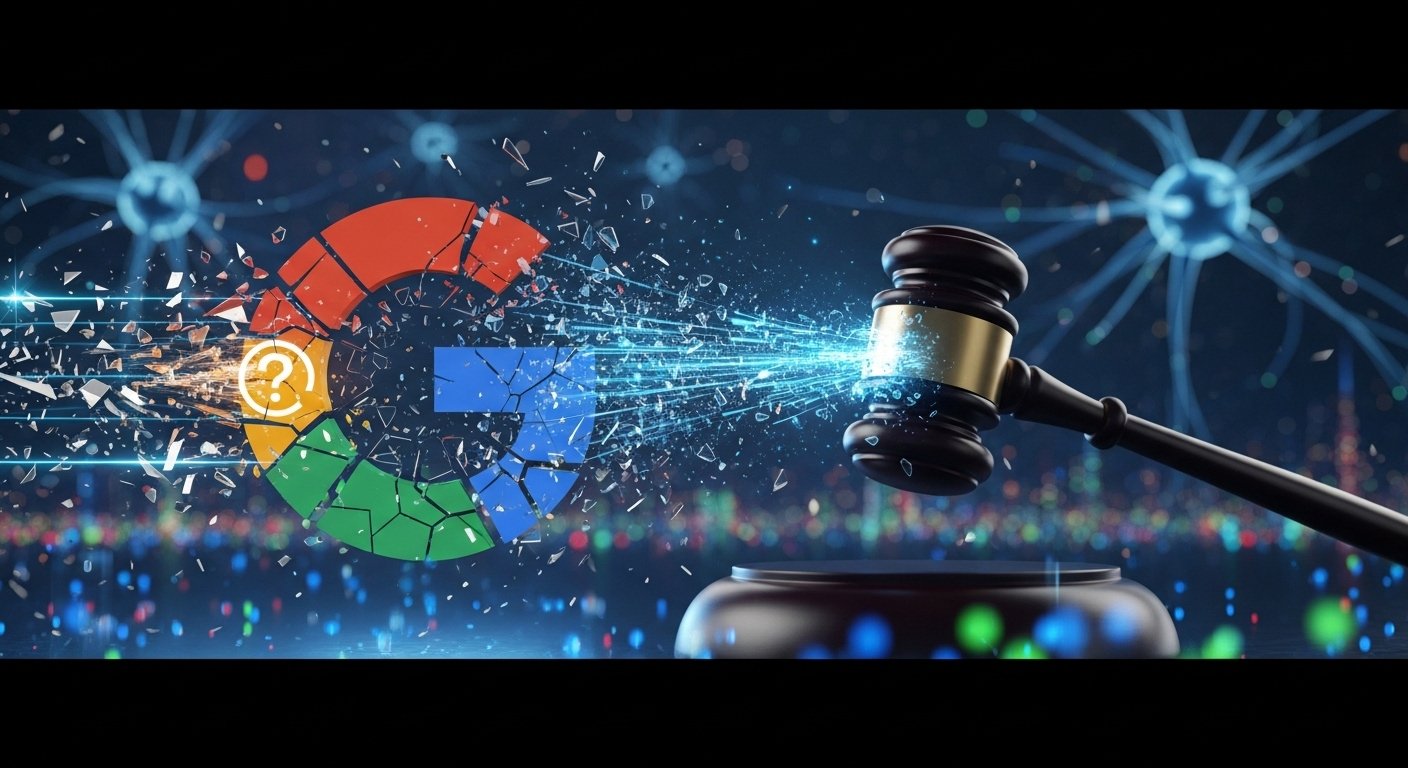Introduction: A Landmark Case Against Google
In September 2025, the Google antitrust ruling secured one of the most significant victories for competition in recent tech history. The U.S. Department of Justice (DOJ) found that Google had abused its dominance in the search market through exclusive deals and anti-competitive practices. However, instead of breaking up Google’s core businesses like Chrome or Android, the court opted for targeted remedies that could reshape the digital landscape.
This outcome not only shapes the future of search engines but also has major implications for artificial intelligence (AI) and global digital competition.
Google’s Monopoly Case: The Court’s Key Findings
No Breakup of Chrome or Android
Regulators had considered forcing Google to sell off Chrome or Android, but the judge ruled such measures unnecessary. Chrome continues to hold nearly 70% of the global browser market, making it a cornerstone of Google’s ecosystem. By keeping these assets, Google retains its central role in how users access the internet.
Ban on Exclusive Search Engine Deals
One of the most impactful rulings is the ban on exclusive contracts. Google can no longer require device makers or platforms like Apple and Mozilla to preinstall Google Search or bundle its apps in exchange for revenue-sharing. This opens the door for competing search engines and AI-driven assistants to gain market share.
Mandatory Search Data Sharing
In a move that could shift the balance of power, Google must now share portions of its search index and anonymized user interaction data with qualified competitors. While personal data remains protected, access to query trends, click-through rates, and engagement metrics could help alternative search providers and AI startups develop more competitive tools.
Ad Auction Transparency
The court also ordered Google to make its ad auction processes more transparent. Advertisers will gain clearer insights into how bids are ranked, reducing complaints about hidden pricing structures and unfair advantages.
Market Reaction: Investors Celebrate, Critics Push Back
While regulators hailed the ruling as a step forward, critics argued it was too lenient. Rivals like DuckDuckGo and Yelp labeled the outcome a “slap on the wrist,” warning that Google still retains overwhelming power.
Wall Street, however, viewed the decision favorably. Alphabet’s stock surged nearly 8 percent in the days following the announcement, as fears of a forced breakup vanished. Apple, which relies heavily on its lucrative default search deal with Google, also saw gains after the ruling confirmed its contracts could continue in a non-exclusive form.
Why Google Avoided a Breakup
Judge Amit Mehta explained that the DOJ’s proposed remedies risked overreach. Forcing Google to divest Chrome or Android, he argued, would disrupt consumers and partners without addressing the core issue—exclusive contracts.
The court also acknowledged the changing dynamics of the search market. Generative AI tools such as ChatGPT, Claude, and Perplexity are redefining how people find information. This emerging competition weakened the case for breaking up Google’s ecosystem.
Implications for AI and Search Engine Competition
Leveling the Playing Field with Data Access
The requirement for Google to share anonymized search data could be a turning point for AI development. Smaller companies and startups can now train more powerful models, improving relevance and accuracy without the massive datasets Google controls.
New Opportunities for Default Search Engines
Without exclusivity, Apple and Mozilla are free to explore alternative deals. This means iPhone or Firefox users could one day see a search engine like DuckDuckGo, Bing, or Perplexity set as the default—if these companies can offer competitive terms.
Perplexity’s Ambitious Bid for Chrome
In August 2025, AI startup Perplexity shocked the industry by offering $34.5 billion to acquire Chrome. While Google is not obligated to sell, the bid highlights how aggressively AI companies want control over entry points to the web. Even if the deal never happens, it shows where the future battles may be fought.
What Happens Next for Google and AI
Appeals Process
Google has confirmed plans to appeal, which could delay enforcement or reshape certain requirements.
Stronger AI Competition
By recognizing AI as a true competitor to search, the court has validated the role of generative AI in challenging Google’s dominance.
Policy Pressure
Lawmakers and regulators may revisit antitrust laws to ensure stronger enforcement if current measures prove insufficient.
Conclusion: A Cautious Victory for Competition
The 2025 Google antitrust ruling sends a clear message: the company abused its dominance, but regulators stopped short of dismantling its ecosystem. Instead, Google faces restrictions on exclusivity, new transparency rules, and the obligation to share anonymized search data.
For Google, this is a relief—it keeps its most valuable assets intact. For competitors, it’s a rare opening to innovate, especially in AI-driven search. The true test will be whether smaller players can seize this opportunity and reshape how billions of people discover information online.
Also read: AI and The Future of Search
